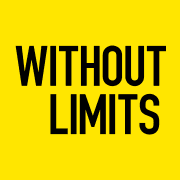Re-imagining infrastructure in L.A.
What do you love about Los Angeles?
Los Angeles is a global city with a brand that is iconic around the world. As a global destination city, L.A. is truly a gateway to the rest of the world, and many of our residents hail from other countries. I love the diversity this brings to our city, but it also means we have a responsibility to be open and inclusive so everyone can feel at home here.
When you decided to move to the private sector after 20 years with the City, what made you choose AECOM?
It was important for me to be at a firm that shared my values of transforming communities and empowering employees. I initially saw AECOM as an engineering firm, and I’m not an engineer. But the more I learned about the variety of things AECOM does, and its vision to bring these offerings together for the benefit of clients and communities; it became clear that AECOM was the perfect place for me to be.
How important is transportation to L.A.?
Transportation is one of the ways we are going to propel this city forward, and it’s not just about the movement of goods and cars. It’s really about how we connect this region, and how we create opportunities for businesses to grow and for communities to thrive.
When I was in the Mayor’s Office and we were recruiting companies to come to Los Angeles, one of their concerns was always, how far will my employees have to live from the office, and how long will it take them to get there? It was something we always gave a lot of thought to: how we connect communities and make sure people can work and live where they wish, and still have a balanced quality of life. Transportation infrastructure is the key to becoming the city of the future, and a city of opportunities for everyone where they’re not limited by access to a particular region or community.
What does AECOM see as the future of transportation infrastructure in L.A.?
While not losing sight of the challenges our clients are facing today, we’re also thinking about what L.A. is going to look like in the future. With the passage of Measure M, the region actually has resources to really push the envelope and think futuristically, to dream big and not be limited by, “Oh, we don’t have the finances, so of course we can’t do it.” Our starting point is, “We can do it, so let’s figure out what we want the future to look like.”
Are we going to have roads that can charge your cars, and how will autonomous vehicles impact our urban landscape? What do the streets of tomorrow need to look like, and how do we safely accommodate more pedestrians and bicycles sharing the roads? These are the things we’re thinking about now. Bring us your impossible, and we will make it happen.
What does AECOM’s new TV commercial represent to you as a native Angeleno?
When I was an undergraduate at UC Berkeley, I participated in a mentorship program with students who lived in a city called Richmond in the East Bay. It was maybe 30 minutes from San Francisco. I remember talking to these kids, and many of them had never been to San Francisco. It was just a train ride, a BART ride across the bay, and yet many of them had never been there. The fact that their worldview was so narrow and so limited was heartbreaking. So thinking about what Metro has done here in L.A., and what we as their partner have helped them do, is inspiring. That access to opportunity and the ability to fulfill dreams is what the commercial illustrates, and I think the story is going to resonate with viewers. I think it will really help people understand why infrastructure is critical to their lives.







